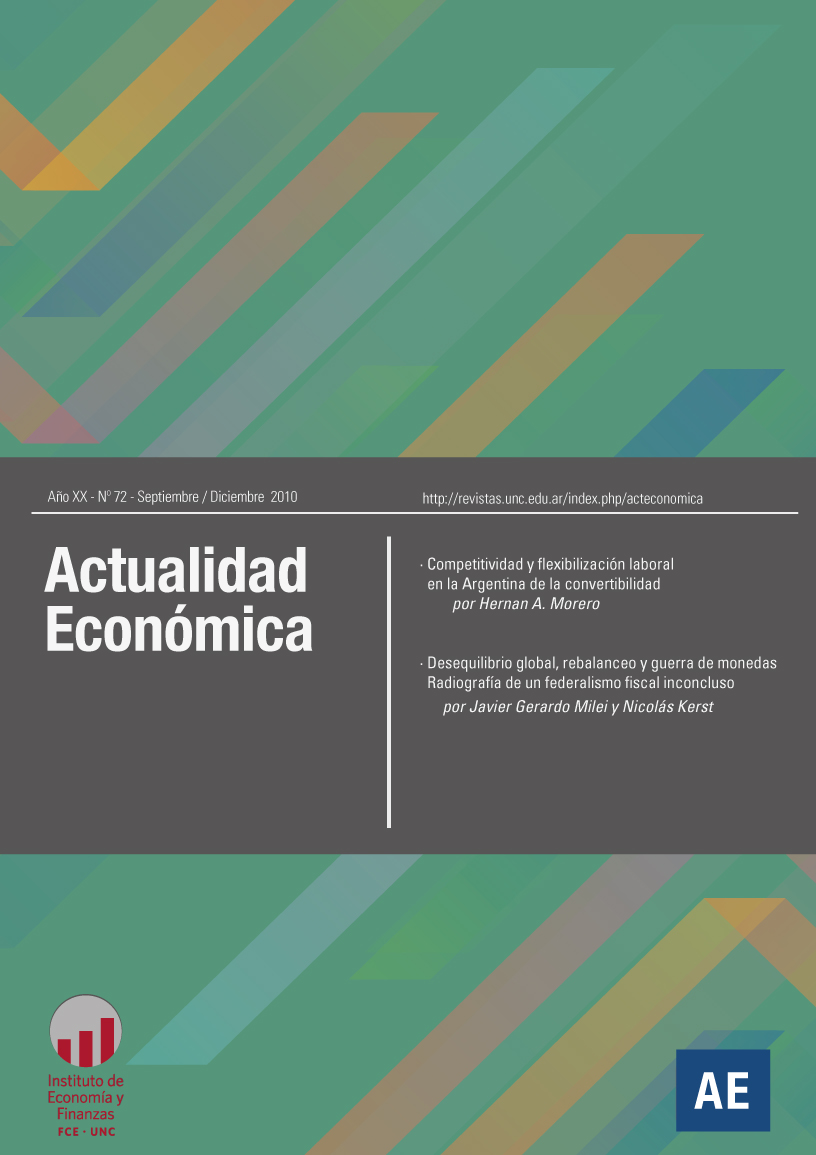Desequilibrio global, rebalanceo y guerra de monedas
Keywords:
Desequilibrio en Cuenta Corriente, Desequilibrio Global, CrecimientoAbstract
Alcanzar el objetivo de “una recuperación mundial sostenida, equilibrada y sólida”, establecido durante Setiembre de 2009 en Pittsburgh por el Grupo de los Veinte (G-20) no será una tarea fácil. Requiere mucho más que volver a la situación anterior. Exige emprender dos acciones económicas esenciales y difíciles al mismo tiempo: un rebalanceo interno y un rebalanceo externo.
En el trabajo abordamos la problemática del desequilibrio global, donde previo a su estudio empírico presentamos un marco normativo para explicar la naturaleza de los mismos. Luego, se hace una descripción de cómo ha evolucionado la economía global luego de la crisis y la bifurcación observada en la recuperación de los distintos grupos de países. Como resultado de los análisis precedentes se plantea un modelo simple de teoría de los juegos que demuestra cómo un problema de incompatibilidad de incentivos podría derivar en una guerra de monedas. Por último se presentan las conclusiones, donde se destaca la necesidad de trabajar de manera coordinada para encontrar una solución robusta y sustentable en materia de crecimiento tal que se maximice el bienestar global.
Downloads
Downloads
Published
Issue
Section
License
Those authors who have published with this journal, accept the following terms:
Authors will conserve their copyright and guarantee the magazine the right of first publication of their work, which will be simultaneously subject to the Creative Commons Attribution-NonCommercial-NoDerivative 4.0 International License that allows third parties to share the work as long as the author and first publication of this magazine are indicated.
Authors may adopt other non-exclusive license agreements to distribute the published version of the work (e.g., deposit it in an institutional telematic archive or publish it in a monographic volume) provided that the initial publication in this journal is indicated.
Authors are allowed and encouraged to disseminate their work through the Internet (e.g., in institutional telematic archives or on their website) before and during the submission process, which may lead to interesting exchanges and increase citations of the published work. (See The effect of open access)









